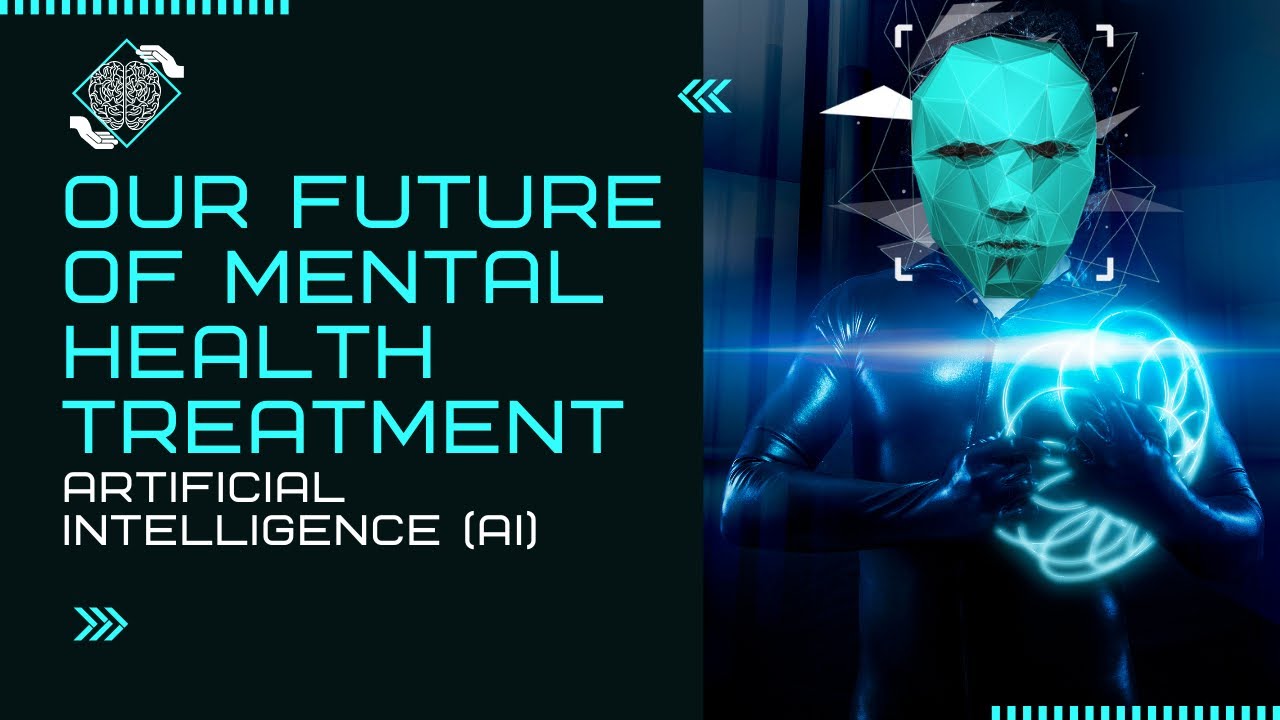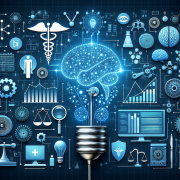How AI is Revolutionizing Mental Health Care: Insights & Ethical Considerations
Embracing a Brighter Future: The Role of Artificial Intelligence in Optimizing Mental Wellness
In an era where technological advancements are redefining possibilities, the fusion of Artificial Intelligence (AI) with mental health care is a beacon of hope for addressing the globally escalating mental health crisis. As someone deeply immersed in the intricacies of AI and its multifaceted applications, I’ve witnessed firsthand its transformative power across industries. The recent exploration into AI-powered mental health care not only accentuates AI’s potential in making therapy more accessible but also brings to light the ethical implications that accompany its adoption.
The Convergence of AI and Mental Health Care
The potential of AI in mental health care is vast, promising a future where mental wellness services are not only more accessible but also highly personalized. Health care professionals are increasingly leveraging AI technologies to offer predictive models of care, enabling early detection of mental health issues even before they fully manifest. The implications of such advancements are profound, particularly in reducing the societal and economic burden mental illnesses impose.

Accessibility
One of the primary challenges in mental health care is accessibility. Myriad barriers, from geographical limitations to socioeconomic factors, often prevent individuals from seeking the help they need. AI-powered platforms and chatbots are bridging this gap, offering 24/7 support and resources to those in dire need. By providing an initial touchpoint, these AI solutions play a crucial role in guiding individuals towards the appropriate level of care, democratizing access to mental health resources.
Ethical Considerations
However, the integration of AI into mental health care is not without its dilemmas. Privacy concerns, data security, and the risk of dehumanizing therapy are among the ethical considerations that must be navigated carefully. In transparently addressing these concerns and implementing stringent safeguards, we can harness AI’s potential while ensuring that the dignity and rights of individuals are protected.
Case Studies
- Therapeutic Chatbots: AI-powered chatbots have been employed as therapeutic tools, offering cognitive behavioral therapy to users. Studies have shown promising results in reducing symptoms of depression and anxiety.
- Predictive Analytics: Through machine learning algorithms, mental health care providers can predict potential flare-ups in conditions like bipolar disorder, enabling preemptive care strategies.

Looking Ahead
The path forward requires a balanced approach, integrating AI into mental health care with a keen awareness of its potential and pitfalls. Collaboration between technologists, healthcare professionals, and ethicists is crucial in developing AI tools that are effective, safe, and respectful of individual privacy and autonomy.
As we embrace AI’s role in mental wellness, let us remain committed to ensuring that technology serves humanity, enhancing the quality of care without compromising the values that define compassionate health care. The fusion of AI and mental health care is not merely a testament to human ingenuity but a reminder of our collective responsibility to uplift and support the most vulnerable among us.
In conclusion, my journey through the realms of AI, from my academic pursuits at Harvard to the practical applications within the healthcare sector, has fortified my belief in the potential of machine learning and artificial intelligence to significantly impact mental health for the better. The dialogues initiated in previous articles about the transformative power of machine learning and AI’s role in optimizing healthcare approaches mirror the optimism and caution required to navigate this frontier. By holding onto the principles of ethics, privacy, and accessibility, AI can indeed become one of the greatest allies in the quest for a healthier, happier world.
As AI continues to evolve, so too should our strategies for integrating these technologies into mental health care. The path ahead is laden with opportunities for innovation, healing, and hope. Let us tread it wisely, ensuring that AI serves as a tool for enhancing the human experience, fostering a society where mental wellness is accessible to all.
Focus Keyphrase:
AI in mental health care









Honestly, when I first heard about AI’s involvement in mental health, I was on the fence—partly hopeful but also wary, particularly about privacy and the authenticity of care. Your article, David, laid out both the possibilities and the pitfalls with a balanced perspective that I appreciate. Coming from a background that’s not in tech (been with an alarm company stateside), the technological aspects are fascinating and a bit daunting. But seeing how AI can offer support, especially in areas with limited access to mental health services, is encouraging. Also, as an anime fan who values compelling storytelling, the narrative of AI’s potential role in mental wellness feels like a hopeful plot in a world that often mirrors the darker themes of “Attack on Titan.” It’s a scenario where humanity leverages technology not for dystopian ends but for our collective wellbeing. Here’s to cautiously optimistic progress.
Hi everyone, David here. I wrote this article to share the promising intersection of AI and mental health care, a subject close to both my professional interests and personal ethos. Given the escalating mental health crisis globally, it’s imperative we discuss how innovative technologies like AI can offer solutions while ensuring we address the ethical concerns around privacy and the human aspect of therapy. I hope this piece sparks meaningful conversations and offers hope for a future where mental wellness is within reach for everyone. Thanks for reading!